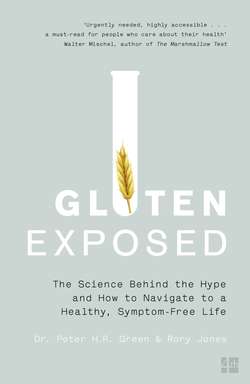Читать книгу Gluten Exposed: The Science Behind the Hype and How to Navigate to a Healthy, Symptom-free Life - Rory Jones, Dr. Green Peter - Страница 37
Test for Vitamin and Mineral Deficiencies
ОглавлениеMy husband does not eat anything that is orange, green, or yellow—otherwise known as vegetables. He’ll eat tomatoes because I told him they were fruit.
(TESS, 29)
Many people take vitamin and mineral supplements because they make them feel healthier. Others use them to supplement a restrictive diet. Several websites and TV personalities suggest easy ways to determine if you are deficient in specific vitamins. One “analysis” includes standing on your right foot for three seconds without losing your balance (to diagnose a B12 deficiency), or pressing your thumb into your breastbone to see if this causes discomfort (to diagnose a vitamin D deficiency). This “testing” ranges from useless to preposterous. It is more likely to uncover a balance disorder and/or leave a black-and-blue mark from pressing too hard.
If you feel that your diet does not contain sufficient amounts of everything your body needs, have your doctor run blood tests for essential vitamins and minerals.
While there are many people in the world suffering from malnutrition and serious vitamin deficiencies, they are rarely the people buying supplements in health food stores. People with malabsorption conditions—celiac disease, inflammatory bowel disease, protein allergies, intestinal damage, etc.—need to be monitored and, if necessary, supplemented, but a balanced diet of fresh ingredients is usually adequate to supply what the body requires.
For better or worse, our diets contain a surplus of fortified foods that usually make up for the nutrients removed during the processing that extends shelf life. An overuse of many vitamins can lead to toxicity, drug interactions, and other serious problems.
